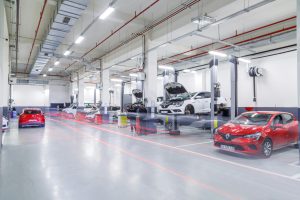Exploring the Power of Predictive Vehicle Maintenance
As technology continues to advance and evolve, industries across the board are incorporating smart, predictive solutions to optimize operations and efficiency. The automotive industry is no exception, with predictive vehicle maintenance making huge strides in revolutionizing the way we keep our cars and trucks running smoothly. By utilizing cutting-edge software and algorithms, predictive maintenance has the ability to save time, money, and potentially even lives. In this article, we will explore the power of predictive vehicle maintenance and how it is shaping the future of the automotive industry.
What is Predictive Vehicle Maintenance?
Predictive vehicle maintenance, also known as predictive maintenance or predictive analytics, is the practice of utilizing data and algorithms to predict when a vehicle may require maintenance or repairs. By analyzing data points such as vehicle diagnostics, driver patterns, and weather conditions, predictive maintenance can anticipate issues before they even arise. This allows for proactive maintenance and repair scheduling, eliminating the need for reactive, last-minute repairs that can be costly and inconvenient.
The Benefits of Predictive Vehicle Maintenance
The benefits of adopting predictive vehicle maintenance in the automotive industry are numerous. One of the most significant advantages is the reduction in vehicle downtime. Predictive maintenance can detect potential issues early on and schedule repairs during times when the vehicle would normally be idle. This results in less time off the road for maintenance and increased productivity for businesses that rely on transportation.
In addition to minimizing downtime, predictive maintenance can also save money for both individuals and companies. By identifying and addressing issues before they escalate, costly repairs can be avoided. This can also lead to lower insurance premiums and increased resale value for vehicles that have a documented history of proactive maintenance.
Furthermore, with predictive maintenance, maintenance schedules can be optimized based on actual vehicle usage and other factors, rather than relying on traditional methods of scheduled maintenance. This can result in quicker and more targeted maintenance, ultimately leading to increased efficiency and cost savings.
The Impact on Safety
Predictive maintenance not only benefits vehicle owners and businesses, but it also has a significant impact on safety. By identifying and addressing potential issues before they become critical, predictive maintenance can prevent accidents from occurring. This is especially important in industries such as transportation and logistics, where vehicle failure can have severe consequences.
Additionally, predictive maintenance can also improve driver safety by monitoring driver habits and identifying potential risks. For example, if a driver has a tendency to brake hard or excessively accelerate, predictive maintenance can alert fleet managers to provide coaching or training to improve driving behavior and prevent accidents.
The Future of Predictive Vehicle Maintenance
As technology continues to advance, so does the potential of predictive vehicle maintenance. With the rise of Internet of Things (IoT) devices, such as sensors and cameras, vehicles can now utilize even more data points to analyze and predict maintenance needs.
Artificial intelligence and machine learning also play a significant role in the evolution of predictive maintenance. By continuously learning and adapting based on new data, AI algorithms can become more accurate and effective in predicting maintenance needs.
Challenges and Considerations
While predictive maintenance has the potential to greatly benefit the automotive industry, there are also some challenges and considerations to keep in mind. One of the main challenges is the initial investment required for the technology and infrastructure needed to implement predictive maintenance systems. However, the potential cost savings in the long run may outweigh this initial cost.
Data privacy is also a concern, as predictive maintenance relies on collecting and analyzing data from vehicles and drivers. It is crucial for companies to ensure that proper measures are in place to protect this data from cyber threats.
In Conclusion
Predictive vehicle maintenance is a game-changer in the automotive industry. By utilizing advanced technology and data analysis, it has the power to save time, money, and lives. As the technology continues to evolve, we can expect to see even more significant impacts and benefits from predictive maintenance in the future. Whether you are an individual vehicle owner or a business relying on a fleet of vehicles, now is the time to explore the power of predictive vehicle maintenance and stay ahead of the curve in the ever-changing automotive landscape.










